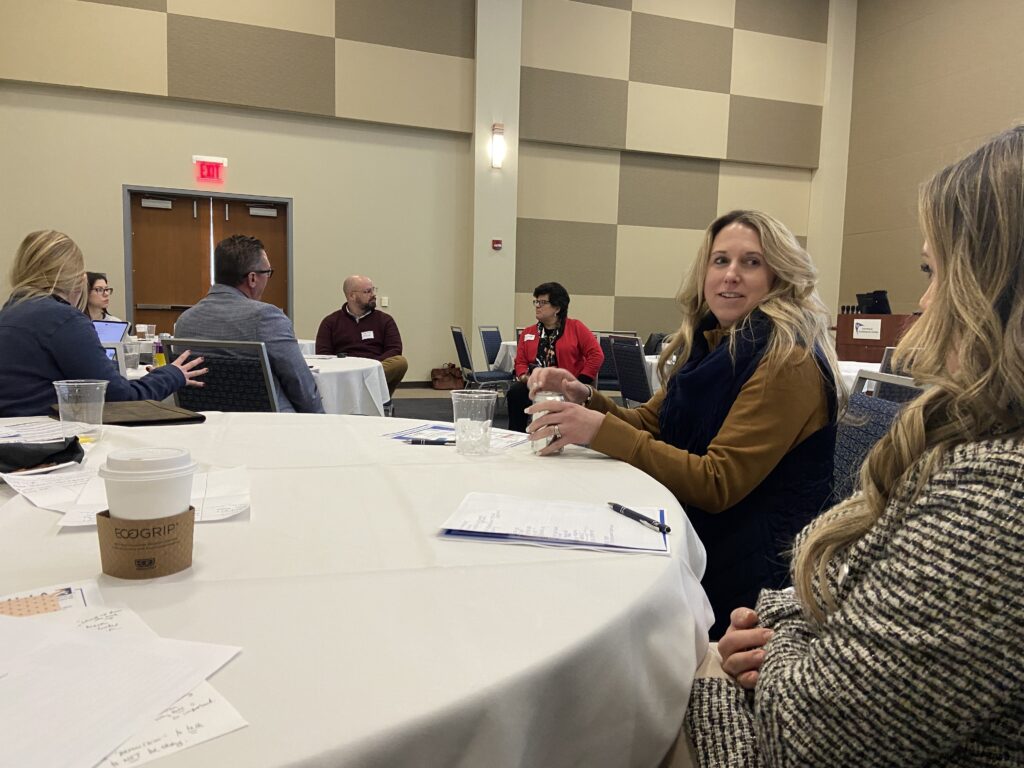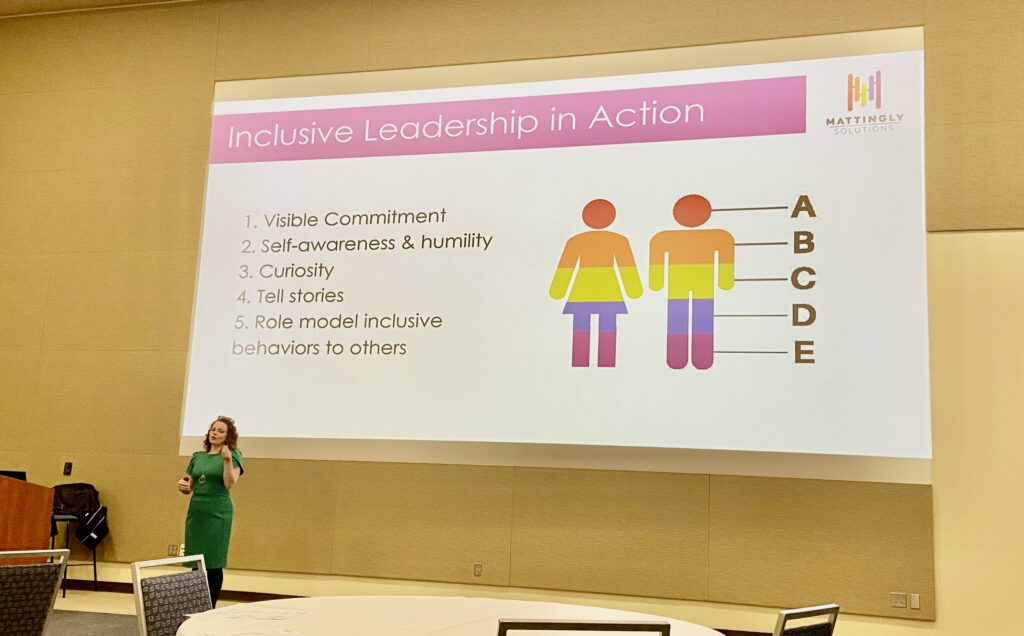We held our Mental Health Summit and Workshop in January with Laurie Barnett Levine and Dr. Victoria Mattingly. Both speakers touched on the fact that in the pursuit of holistic well-being, it is crucial to acknowledge mental health as an inseparable component of our overall health. We are on a mission to help break down the stigma surrounding mental health and recognize it as an essential element of our well-being. After all, mental health IS health. Read below for the essential takeaways from the summit.

10 Key Insights on Mental Health: Laurie Barnett Levine, Mental Health America of Southwest PA
- Mental Health IS Health: Let’s dismantle the stigma surrounding mental health by acknowledging it as any other health-related condition.
- Start with a Check-up from the Neck-up: Recognize that there is no health without mental health – initiate your well-being journey with a mindful self-check.
- 1 in 5 Adults Affected: Mental illness is prevalent, impacting 1 in 5 adults and underscoring the need for open dialogue.
- The Pandemic’s Mental Health Tsunami: The pandemic unleashed a mental health tsunami, emphasizing the urgency of addressing mental well-being.
- Surgeon General’s Warning: The Surgeon General labels mental health as a defining public health crisis, highlighting its critical importance.
- 11 Years to Seek Treatment: On average, it takes 11 years for individuals to seek treatment after the onset of mental health symptoms, revealing a concerning delay.
- Rising Suicide Rates: Suicides are on the rise, making it crucial to discuss this sensitive topic with empathy and understanding.
- Language Matters: Avoid using the word “commit” when discussing suicide – individuals die by or from suicide, emphasizing the connection to mental health.
- Loneliness Epidemic: Suicide is often a result of mental health issues, amplified by the epidemic of loneliness, particularly in the era of remote work.
- Employer’s Role: Employers can play a part by asking simple yet profound questions about friendship and support systems, emphasizing the importance of hope.
- Qualities for a Healthier Workplace:
- Trust
- Open Communication
- Autonomy and Flexibility
- Acknowledging and Rewarding Work
- Know Employee Values First: Understanding what employees value contributes to a positive and supportive workplace.
- Utilize QPR: Employ Question, Persuade, Refer (QPR) techniques to give individuals “permission” to talk about their mental health struggles.
- You Don’t Know What You Don’t Know:
- Lack of Awareness: People may be unaware of their mental health issues or symptoms, necessitating proactive measures.
- Promote Mental Health Screenings: Encourage the utilization of mental health screenings and provide information on their availability.
- Find screenings at https://screening.mhanational.org/screening-tools/
- Mind-Body Connection:
- Depression/Anxiety effects physical health: Recognize that individuals experiencing depression or anxiety may often have other physical health issues, highlighting the interconnectedness of mental and physical well-being.
- Serotonin in the Stomach: Acknowledge the direct link between the mind and body, where the stomach carries the most serotonin.
Mental Health Allyship: Dr. Victoria Mattingly, Mattingly Solutions
Mental health allyship is not just a concept; it’s a dynamic and evolving practice that requires dedication, empathy, and a commitment to creating an inclusive environment for everyone.
- Understanding Allyship:
- Allyship actively supports the rights of marginalized groups.
- It’s a partnership – a collaborative journey toward a common goal.
- Allies utilize their power and status to offer tangible support without sharing the same identity.
- Reframe privilege as a force for good, acknowledging it doesn’t negate personal hardships.
- Centering involves focusing on the partner’s lived experience, emphasizing the importance of active listening.
- Ally Responsibilities:
- Show compassion, offer support, and connect to resources.
- Focus on ability-based inclusion, recognizing and understanding physical (dis)abilities.
- Emphasize diversity in how we perceive each other.
- Understanding Mental Health:
- Mental health is context-specific – one can have good mental health but still experience mental illness and vice versa.
- DEI (Diversity, Equity, and Inclusion) framework:
- Diversity – See and acknowledge differences.
- Equity – Elevate and provide fair opportunities.
- Inclusion – Treat everyone with respect and create a sense of belonging.
- Inclusive Behaviors:
- Microaggressions vs. Microaffirmations:
- Microaffirmations are subtle actions that make someone feel valued. (Microaggressions are indirect, subtle or unintentional discrimination against members of a marginalized group.)
- Embrace the platinum rule – treat others how THEY want to be treated.
- Call out microaggressions by engaging, asking questions, and fostering open conversations.
- Microaggressions vs. Microaffirmations:
- Inclusive Leadership in Action:
- Visible Commitment: Leaders actively demonstrate their commitment to inclusivity.
- Self-awareness & Humility: Acknowledge mistakes, showcase humility, and actively work towards improvement.
- Curiosity: Foster an environment of continuous learning and understanding.
- Tell Stories: Share narratives that promote inclusivity and diverse experiences.
- Role Model Inclusive Behaviors: Lead by example, showcasing inclusive practices to inspire others.
- When Mistakes Happen: Use self-awareness and humility to rectify errors, demonstrating a commitment to ongoing improvement.
By recognizing mental health as an integral part of overall health and fostering an inclusive environment, we can collectively work towards breaking the stigma surrounding mental health. We aim for a future where mental health is not just an aspect of health but an essential component of our well-being.

Post a Comment